Pigeon keeping, also known as pigeon fancying, is the art of breeding domestic pigeons. People who keep pigeons are known as pigeon fanciers.
Fancy might include breeding, showing, ownership, and sporting. Whatever the reasons are, people all around the world have been keeping pigeons for over 5,000 years now. In the early 1900s, pigeons became popular pets among the working class.
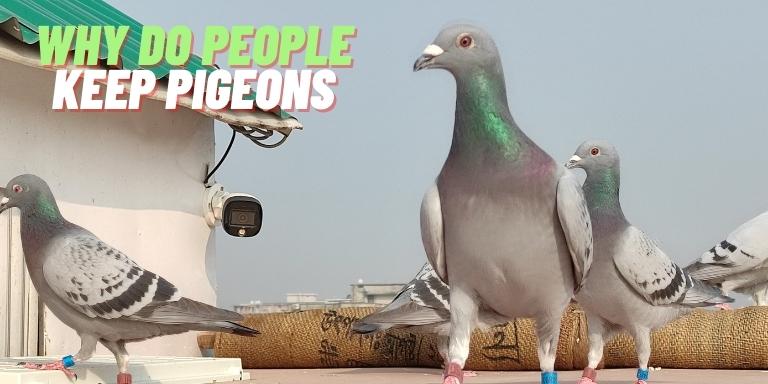
History of Pigeon Keeping
Pigeons are native to seaside cliffs worldwide, especially in Europe, North Africa, and the Middle East. During the 8th century BC, Olympic Games were popular, and people were eager to know the result. Hence, Greeks started keeping them as messenger birds to deliver game results to nearby cities.
Pigeons were initially domesticated for food sources during the Roman reign. Soon, they fell out of favor as other poultry items came into the option. After that, people started keeping pigeons as their hobby.
Europeans carried pigeons as pet birds during the Great Atlantic Migration. Surprisingly, the birds escaped from captivity and were flung out all around North America.
8 Reasons Why People Keep Pigeons
1. A good pet
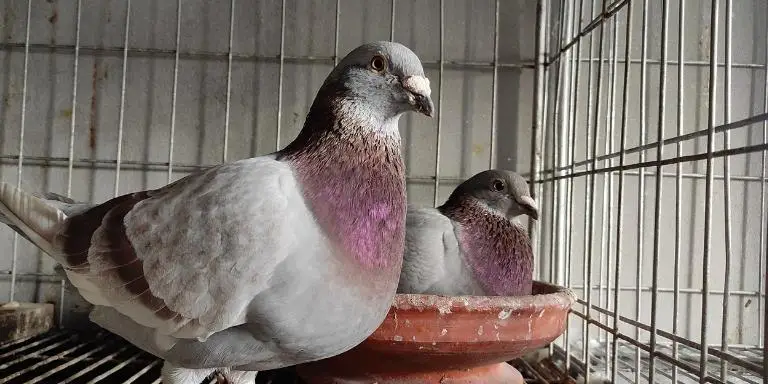
Pigeons are smart, intelligent, and soothing to look at. They do just fine wherever you keep them. Pigeons are not only cute but also loyal birdies both to their partners and the raiser. They will come back home flying from miles away. These homing capabilities make pigeons a perfect aerial pet.
2. Not noisy
Is it desirable if your pet’s noise wakes you up in the middle of the night? Definitely no! Pigeons keep us away from this hassle. Pigeons are calm, discreet, with a gentle voice, and do not bother their owners.
3. To pigeon race
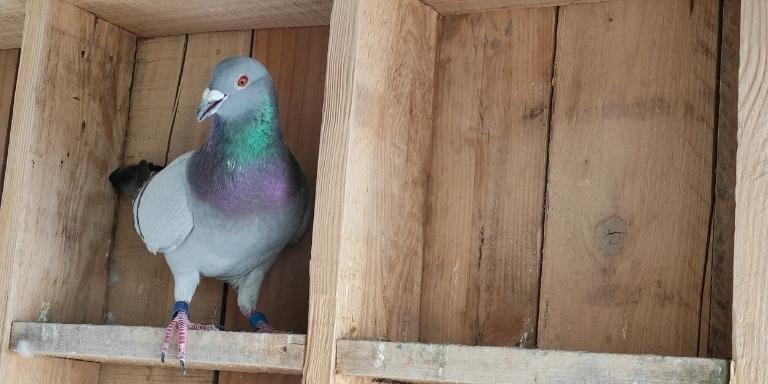
Pigeons are bred and kept for their aerial performance. Homing pigeons are trained to participate in pigeon racing, where the fastest home returner wins handsome cash prizes. Rollers, Tumblrs, and Tipplers are some breeds trained for rolling, diving & high-flying skills rather than homing.
4. For exhibiting
Exhibitions or pigeon shows are quite popular among pigeon owners. Exotic pigeons for stance Jacobins, Fantails, Pigmy Pouter, etc., are some of the most competed pigeons in exhibitions. Judges compare them and their attributes to call a winner.
Interestingly, Akbar the Great had over 10,000 show pigeons in his collection!
5. Easy to raise
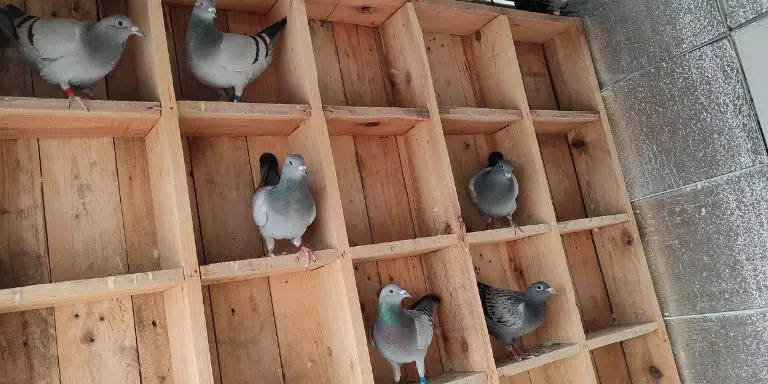
No one wants a troublesome pet. Pigeons are easy to raise and maintain. They do not require a large coop or any grandeur condition to live. They can live on simple food such as herbs, grains, greens, and seeds. They maintain peace with other pets as long as they are not threatened.
6. Good Source of protein
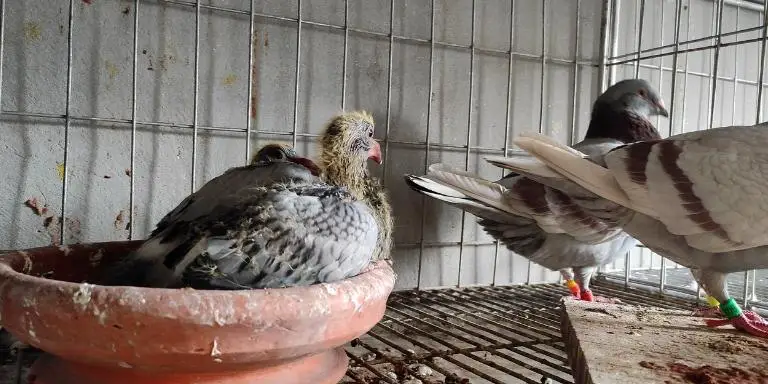
Squab, a culinary term for the meat of young pigeons, is an amazing source of protein. It is moist, tender, flavourful, and tastes like dark chicken. It has widely eaten in Europe and Africa.
Utility pigeons such as Kings, Mondaine’s, and Carneaus are enjoyed as delicacies in many top-notch French restaurants!
7. Commercial opportunities
Pigeons unveil an excellent business opportunity. The reason, there are millions of pigeon farms across the globe. The benefits are-
- Pigeons farming does not require a huge capital or a vast area.
- It takes only about 14-18 days to hatch eggs.
- Squabs are suitable for consumption in their 3-4 weeks of age.
- Squabs are a significant addition to a patient’s diet. So, it has stipulations in the medical sector.
- The pigeon becomes an adult within 5-6 months, and the female becomes able to lay eggs. Therefore, pigeon farming has a high reproduction rate.
- Pigeons are super low maintenance.
- People now prefer to buy pets from online platforms too. Hence, the scope is immense for business owners with an increased customer base.
8. Pigeons post
Many people raise pigeons as courier birds. Hence, they act as individual posts too! The pigeons have carried in cages to a spot where notes are attached to their legs. When they are out of captivity, pigeons fly back to their home, where the recipient may receive the information.
The homing abilities of pigeons get them to do some unlawful acts too. Shameful to say, many prisoners and assassins used them to deliver messages.
In 2017, Kuwait customs caught a pigeon with a backpack of drugs.
Just a Hobby or Much More?
Pigeon keeping is not only a hobby. It’s a good source of leisure and entertainment. Many fanciers say visiting their pet pigeons relieves them from the stress of everyday lives.
Fanciers come from all social classes and of all ages. What binds them all is – their love for pigeons. It’s not only a hobby to them; it’s an emotional connection too.
Pet of a holy cause
Investing time and interest in pigeon petting may divert people from harmful pursuits. Young hobbyists can do something worthwhile, tending to their pigeons. It keeps them away from various unethical acts and raises a sense of responsibility.
Watch the story of John O’Brien and his journey to overcome alcoholism.
Hazards Related to Pigeon Keeping
Keeping pigeons might lead to a condition known as pigeon fancier’s lung. It is an extrinsic allergic reaction similar to Asthma. It develops when a person is exposed to particular proteins in the dust from pigeon feathers for a long time. The condition usually goes away with a few treatments. It might be advised to stay away from the birds in severe cases.
Conclusion
Pigeon keeping is always aesthetically pleasing and fun. We should look after them with sincerity and kindness.
You might also be interested in: